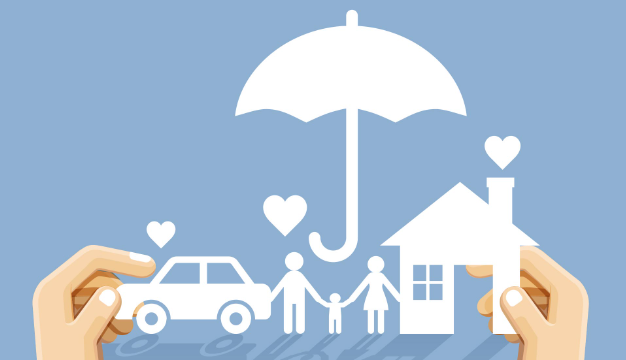Insurance is a way to protect yourself from unexpected financial problems. You pay a small amount of money regularly to an insurance company, and in return, they promise to help you if something bad happens, like getting sick, having a car accident, or your house getting damaged. It’s like having a safety net that catches you when things go wrong, so you don’t have to worry too much about the costs.
Access exclusive content on the moneymortal platform and stay informed with valuable updates.
What is Insurance
Insurance is essential for managing risks and protecting yourself from financial losses due to unexpected events. In simple terms, insurance is a contract between you and an insurance company where you pay a premium (a regular payment) in exchange for financial protection. This protection comes into play if something unfortunate happens, like a car accident, a medical emergency, or damage to your home. The insurance company then helps cover the costs associated with these events, reducing the financial burden on you.
There are different types of insurance to address various needs, such as health insurance for medical expenses, auto insurance for vehicle-related incidents, and home insurance for property damage. By having insurance, you can have peace of mind knowing that you have a safety net to rely on during challenging times, ensuring that unexpected expenses don’t cause significant financial hardship.
Key takeaway
- Insurance is a contract that provides financial protection against specific risks or events, where one party (the insurer) agrees to compensate the other party (the insured) for losses covered by the policy.
- Common types of insurance include life, health, homeowners, and auto insurance, each designed to protect against different risks and provide specific benefits based on the policy terms.
- Insurance helps individuals and businesses manage financial risks by spreading the cost of potential losses among many policyholders, ensuring that individuals are not solely responsible for large unexpected expenses.
How Insurance works
Insurance works by spreading the risk of unexpected events among many people or businesses. When you buy insurance, you pay a certain amount of money called a premium to an insurance company. In return, the insurance company promises to help you financially if something bad happens to you or your property, like a car accident, illness, or damage to your home.
Insurance companies collect premiums from lots of people, which creates a pool of money. When someone in the pool experiences a covered loss, such as a car accident or medical expenses, the insurance company uses the money from the pool to help pay for the costs. This way, the financial burden is shared among many people, making it more affordable for individuals to handle unexpected situations.
For example, if a person’s car is damaged in an accident, their auto insurance policy would cover the repair costs based on the terms of the policy. Similarly, if someone gets sick and requires medical treatment, health insurance would cover a portion of the medical expenses.
Various types of Insurance
Various type of insurance is designed to provide financial protection and peace of mind for different aspects of life and unexpected situations.
Health Insurance
Health insurance is a type of coverage that helps pay for medical expenses, such as doctor visits, hospital stays, prescription medications, and surgeries. When you have health insurance, you may need to pay a deductible (a fixed amount you must pay before the insurance starts to cover costs) and copays or coinsurance (a percentage of the cost you pay for covered services). Many health insurance plans also cover preventive services like vaccinations and screenings at no additional cost. You can obtain health insurance from insurance companies, through your employer as a benefit, or from government programs like Medicare (for seniors) and Medicaid (for low-income individuals and families).
Home Insurance
Home insurance, also known as homeowners insurance, protects your home, belongings, and other structures on your property (such as sheds or garages) from various risks, including fire, theft, vandalism, and certain types of damage. However, home insurance typically does not cover floods or earthquakes, so you might need separate insurance policies for those specific risks. If you have a mortgage on your home, your lender will likely require you to have home insurance to protect their investment.
Auto Insurance
Auto insurance provides financial protection in case of accidents or damage related to your vehicle. It helps cover the costs of repairs to your car, medical expenses for injuries sustained in an accident, and liability for damage to other people’s property or injuries caused by you. You pay an annual premium to an auto insurance company, and they will cover most of the costs if you are involved in an accident. If you are financing or leasing a car, your lender or leasing company will likely require you to have auto insurance as a condition of the loan or lease.
Life Insurance
Life insurance is a policy that pays a sum of money (called a death benefit) to your beneficiaries, such as your family members or loved ones, in the event of your death. You pay regular premiums during your life to maintain the coverage. There are two main types of life insurance: term life insurance, which provides coverage for a specific period (like 10 or 20 years), and permanent life insurance, which covers you for your entire life as long as you continue to pay the premiums.
Travel Insurance
Travel insurance covers various costs and losses associated with traveling, including trip cancellations, emergency medical care, lost baggage, rental car damage, and other unexpected incidents during your trip. It helps protect you financially from disruptions and unexpected expenses while traveling. However, it’s important to note that travel insurance may not cover certain circumstances, such as cancellations due to weather conditions, acts of terrorism, or injuries from extreme sports or activities.

Why Insurance is important
Insurance is important because it helps protect you, your family, and your belongings from unexpected financial burdens caused by accidents, illnesses, or other unforeseen events. When you have insurance:
- Medical Bills: Insurance can help cover the costs of medical treatments, hospitalizations, and routine check-ups, ensuring that you can get necessary healthcare without worrying about high expenses.
- Auto Accidents: If your car is damaged in an accident or you cause injury to someone else, auto insurance can help pay for repairs and medical expenses, protecting you from costly liabilities.
- Home Protection: Home insurance safeguards your property and belongings from damage due to fires, theft, or other disasters, providing financial support for repairs or replacements.
- Financial Security: Life insurance provides a lump-sum payment to your loved ones if you pass away, ensuring that they are financially supported during a difficult time.
Insurance offers peace of mind by reducing the financial risks associated with unexpected situations, allowing you to focus on your well-being and the well-being of your loved ones without worrying about financial setbacks.
Benefits and Risks
Insurance provides many benefits, such as financial protection, coverage for medical expenses, asset protection, peace of mind, and improved financial stability. However, there are also risks associated with insurance, including the cost of premiums, out-of-pocket expenses like deductibles and copayments, the possibility of denied claims, limitations on coverage for certain risks, and the potential for fraud or misuse of insurance policies.
| Benefits of Insurance | Risks of Insurance |
|---|---|
| Provides financial protection against unexpected events | Cost of premiums can be expensive |
| Helps cover medical expenses and healthcare costs | Deductibles and copayments may be required for certain services |
| Protects assets and belongings from damage or theft | Some claims may be denied or disputed |
| Offers peace of mind knowing you’re financially secure | Not all risks may be covered by insurance policies |
| Allows for better financial planning and stability | Risk of insurance fraud or misuse |
Conclusion
Insurance is a valuable tool that provides financial security and peace of mind to individuals and businesses alike. By spreading the risks of unexpected events among many policyholders, insurance helps protect against financial losses from accidents, illnesses, property damage, or other unforeseen circumstances. It allows individuals to access necessary healthcare, repair or replace valuable assets, and support loved ones in the event of tragedy. While insurance comes with costs and considerations like premiums and deductibles, the benefits of having coverage far outweigh the risks. Ultimately, insurance plays a critical role in promoting financial stability and enabling individuals to navigate life’s uncertainties with confidence.
